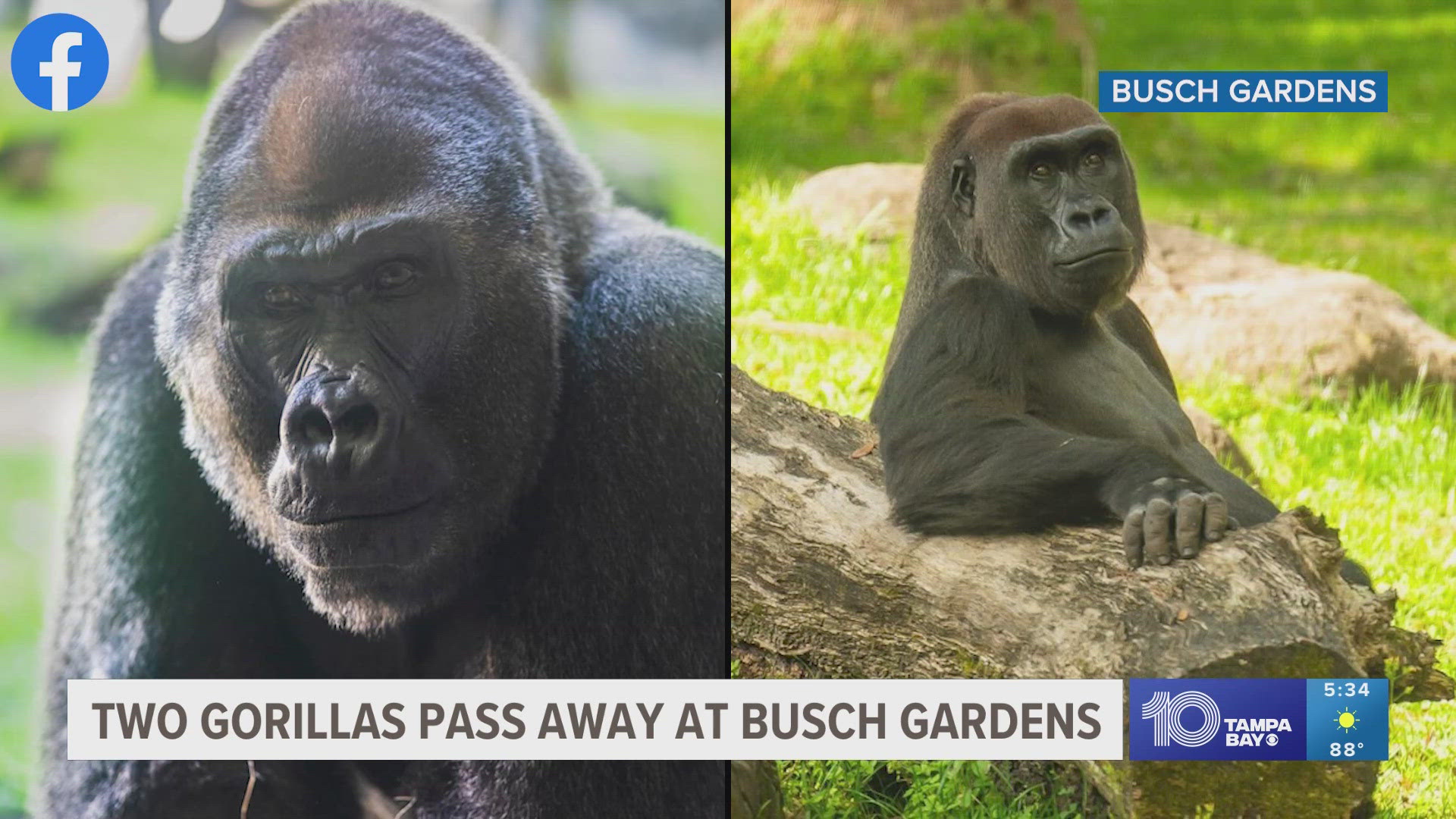TAMPA, Fla. — Three Jacksonville primates and two Tampa gorillas died within the past 30 days from an illness.
Busch Gardens Tampa Bay first announced that 19-year-old Tinga died after getting sick at the beginning of August. The western lowland gorilla died after her health rapidly declined from a short illness that park staff did not specify.
By the end of August, three apes died within a week at the Jacksonville Zoo and Gardens from Shigella. Bulera, a 25-year-old western lowland gorilla, died Aug. 23. Three days later, bonobo brothers Jumanji and Jenga died from the same highly contagious disease.
Then, over the weekend, Busch Gardens announced their gorilla named Jim died after his health declined over the past few weeks. The western lowland gorilla was 37. Park staff did not identify what caused his health to decline.
It's unclear if the deaths at Busch Gardens and Jacksonville Zoo and Gardens are related in any way to each other.
Both zoos' staff said they would be monitoring the well-being of their other apes to make sure they remain healthy.
According to the International Fund of Animal Welfare, a nonprofit rescue helping to rehabilitate and release animals, gorillas express a range of emotions, including grieving for the dead.
In the wild, gorillas typically live for 30 or 40 years and in human care, they may live into their 50s, according to the Smithsonian's National Zoo and Conservation Biology Institute.
What is Shigella?
Shigella is a bacterial infection that can spread through feces, food or water. Symptoms include diarrhea, stomach cramps, vomiting and dehydration. Despite protective measures such as quarantine, sanitation and using protective equipment to interact with animals, the bacteria can lie dormant in an asymptomatic carrier and be spread, according to the Jacksonville Zoo.
Humans can get shigella but it usually causes mild symptoms that go away on their own. For apes, it can be more serious because it's harder for them to fight off the bacteria.
Treatment for shigella includes providing the apes with fluids and antibiotics while animal care staff monitor them.

